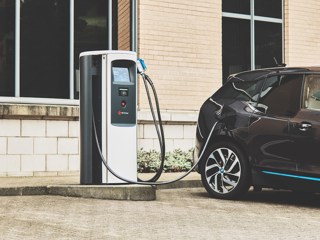Politicians must work with fleets and car makers to deliver a realistic transition to electric vehicles, says Tony Donnelly, chief executive of Goodwood Corporate Mobility.
A new Government will be established after the December 12 election and Donnelly (pictured) believes that future transport policies should reflect the suitability and availability of EVs for businesses.
He said: “Businesses require a robust platform on which to base their vehicle decisions - built by those who understand and work in the arena where it matters: fleet decision-makers, motor manufacturers and the charging point industry working in partnership with ministers.
“I am all in favour of the electric vehicle revolution and I spend my working week with businesses who want to embrace this wonderful and powerful proposition. But they are unable to do so for reasons that include: Vehicle cost, battery range concerns, an inadequate national recharge infrastructure and the requirements of drivers who travel long distances and struggle to find the time to recharge.”
The Government is keen to push the transition to carbon-free travel as quickly as possible in order to meet is net zero target in 2050. Proposals across the parties to ban the sale of petrol and diesel cars and vans differ with target dates between 2025 to 2040.
“Those advocating the rush to rid the country of combustion engine vehicles by 2025 or soon after don’t have the remotest idea of the real world practicalities and care even less what their clean air vision requires ahead of implementation. The environment is hugely important, but not to the exclusion of all that is sensible and essential from a business perspective,” explained Donnelly.
A mass switch to electric is estimated to leave a financial black hole in HM Treasury coffers amounting to £33.7 billion in ‘lost’ fuel duty and VAT alone, according to a recent report by the Institute for Fiscal Studies.
Revised benefit-in-kind bands, announced earlier this year, provide significant savings for drivers who choose electric models. This is expected to lead a surge in demand from those that want to take advantage of the tax savings but there are still significant vehicle supply constraints.
Donnelly said: “Fleets should not abandon the electric vehicle proposition, but they should not rush head long into embracing the technology simply because it looks attractive from a benefit-in-kind tax viewpoint. Detailed analysis of drivers’ journey profiles must be undertaken as a starting point to check the practicality of electric vehicles.
“The fleet market has both a huge potential and desire to lead the rapid national acceleration of electric vehicle take-up, but for many it is still too difficult to make the switch in the real world. Politicians must understand that and those elected on December 12 must work with the fleet and motor industries to understand the challenges faced and then deliver realistic - not kneejerk - solutions over a viable timescale.”























Login to comment
Comments
No comments have been made yet.